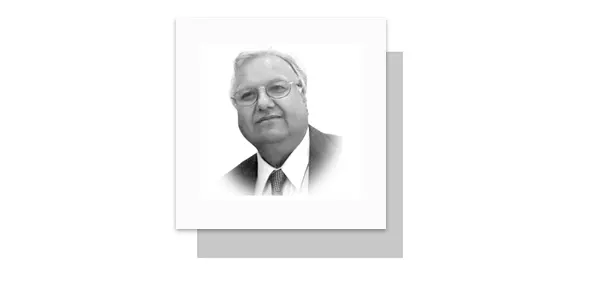BUY a book, or the author will be sold.” Brigadier Saulat Raza(Rtd) made this remark with a wry smile, which instantly reminded me of a Facebook friend.
Allama Abdul Sattar Asim had requested that visit to the Punjab University Book Fair be announced on social media beforehand.
I did so, and a Facebook friend casually asked: “Will free copies of your books be available?” As soon as Brigadier Saulat made his remark, this question echoed in my mind.
I wanted to understand in what sense he meant it. So, I shared his words on social media. Soon after, Obaidullah Kehar responded. Obaid is a seasoned travel writer and prolific author, with ten to twelve books to his name.
He is fortunate—every book he writes sells well. But how? That is an interesting question.
He is neither dependent on publishers nor booksellers. Without relying on a printing press, he publishes his books from home and sells them directly. This means he has built his own independent system for publishing and selling books—and he has succeeded. Despite his success, his comment on Brigadier Saulat’s remark was: “The author has already been sold.”
Brigadier Saulat’s words were impactful enough, but Obaid added another layer to their meaning. This raised an issue about readers as well. The cheap humor influenced by Indian comedy and the commercialized humor of television has ruined the reading culture. People have lost the ability to grasp the deeper meaning behind words. Thus, whether it was Brigadier Saulat’s remark or Obaid’s response, both were interpreted in the same way that PTI (Pakistan Tehreek-e-Insaf) accuses journalists of being “sold out.” While that debate is another matter, the idea of an author being “sold” has a completely different meaning—one that is often misunderstood or, rather, never even considered.
The first thing to understand about an author is that they are not mere performers seeking any opportunity to showcase their talent. An author is a different kind of being, driven by an inner compulsion to write. Whether they compose poetry, craft fiction, or dive into research to unearth forgotten truths, every form of writing is akin to the arduous and painful process of childbirth. If it is research, the costs are immense. Just as a mother nurtures her child after birth, an author too must nurture their work. Unlike Obaidullah Kehar, not every writer is self-sufficient. Some lack the time, while others are not tech-savvy enough to handle both the publication and sale of their work. The burden of these challenges is immense, and I can illustrate this with an example.
When my first book on Pakistan’s history, Hum Ne Jo Bhula Diya (What We Have Forgotten), was ready, Dr. Hasan Al-Amin assured me that his institution, the Iqbal International Institute for Research & Dialogue (IRD), would publish it. I was relieved to have found a publisher. However, due to internal politics, Dr. Al-Amin had to leave IRD, and the institution fell into incapable hands. The book remained unpublished. Frustrated, I waited for a better opportunity. One day, I received a call from Allama Abdul Sattar Asim, who had been informed by my dear friend Agha Irfan Jafar Khan about my book. When Allama inquired about its publication, I said, “I want it published, but I don’t believe in paying for it myself.” He reassured me, “Who asked you to pay?”
Thus, Hum Ne Jo Bhula Diya and its sequel, Jab Moarikh Ke Haath Bandhe The (When the Historian’s Hands Were Tied), were published smoothly. I was lucky. Not every writer is. Recently, my friend Dr. Tasawwur Aslam Bhutta had to spend 2.5 million rupees to publish his travelogue, Zuban-e-Yaar Man Turki (My Friend’s Language is Turkish). The book is beautifully printed, but not every writer can bear such a financial burden. Some end up selling their homes to publish their books. So, when we say an author is “sold,” it means they go through the painstaking process of writing, then must sell their belongings to publish their work—only for people to ask for free copies.
In this situation what should be done? The answer lies in two areas: publishing policies and government support. From paper procurement to printing, publishers face multiple taxes at every stage. While taxation is essential for economic stability, should knowledge and books be taxed? Absolutely not. Many businesses evade taxes—for example, a famous bakery famous for his Khatai in Lahore does daily sales worth millions but pays no taxes. Instead of targeting books and education, the government should go after these tax evaders while supporting the publishing industry.
Publishers have set book prices at exorbitant levels, exploiting readers. Likewise, booksellers exploit both publishers and buyers. If they continue down this path, Pakistan’s publishing industry will collapse. They see digital publishing and online book platforms as threats. This is a mistake. Digitalization can actually enhance book sales. By investing in modern distribution channels, Pakistan’s publishing industry can regain its footing. Now, I want to say something to those who consider themselves book lovers. This article has outlined the journey a book takes before reaching readers. If you truly love books and value knowledge, make a small financial sacrifice—stop asking for free books. If you don’t, not only will authors be forced to “sell themselves,” but knowledge itself will vanish from our society.
—This writer is former advisor to the President of Pakistan, author & mass media theorist.
(farooq.adilbhuta@gmail,com)










